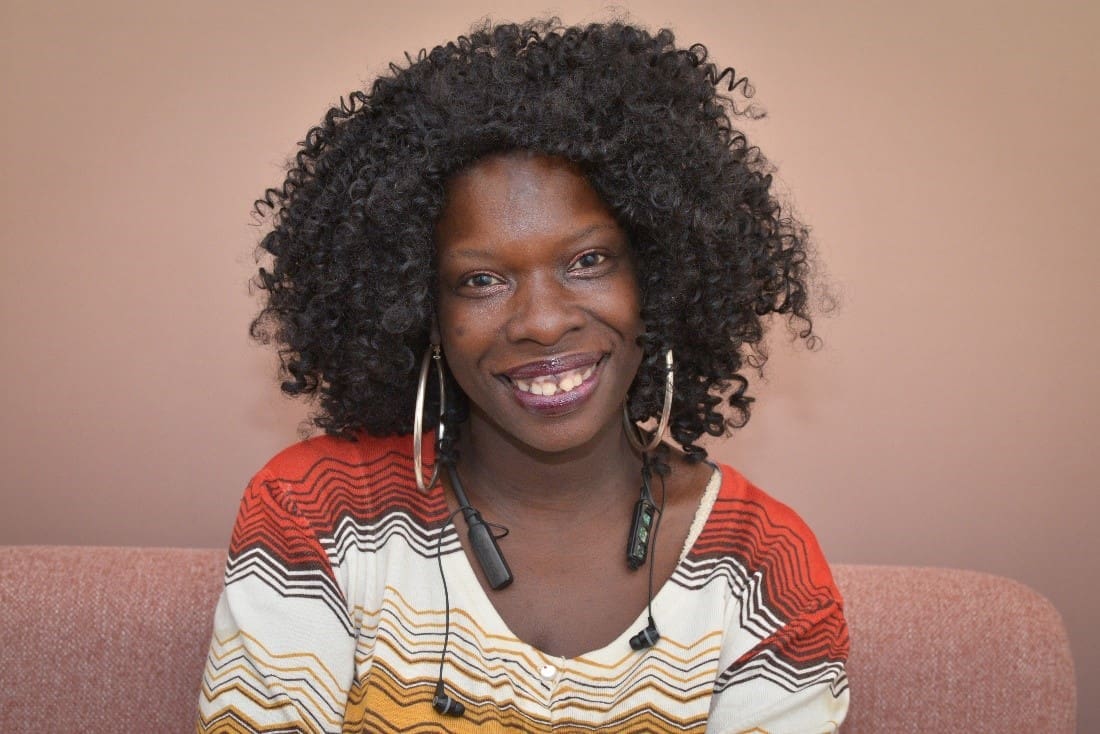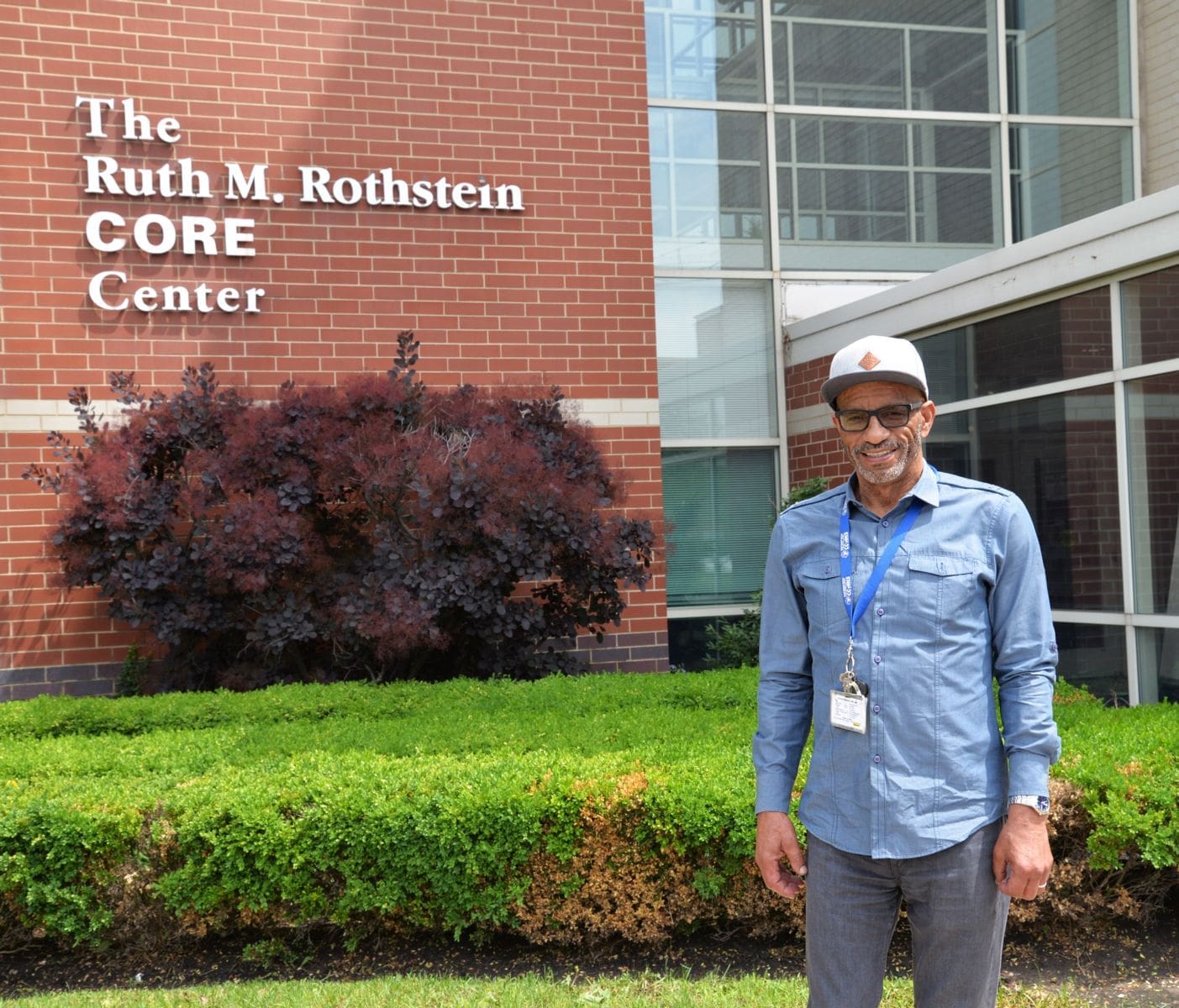 Michelle wants you to know her name.
Michelle wants you to know her name.
She’s proud of it, empowered by it, and she identifies with its deep history.
We can’t publish her last name for confidentiality purposes; however, her enthusiasm is sincere. In fact, she recently spoke at a 100,000 Homes Campaign celebration, sharing her name, her past, and her goals with a large audience over lunch. Michelle gets emotional when she speaks publicly, but her voice is strong.
She has given the AIDS Foundation of Chicago (AFC) permission to write her story because AFC is a partner agency in the 100,000 Homes Campaign, a national movement that seeks to house the country’s most vulnerable people. AFC has an important function locally, coordinating community outreach workers with housing providers.
Michelle can trace the origin of her family name back to slavery. Though several spellings exist, she writes hers with an “e” instead of an “i,” like her enslaved ancestor did, like her father did. It’s a connection to the past she maintains because it’s one of trauma and perseverance.
When she was three years old, Michelle witnessed her father’s murder. A police officer on Chicago’s West Side, her dad was off duty when an assailant stormed into their home and shot him. Michelle cries when she tells this story, but she also expresses gratitude toward her mother and brothers for raising her.
“I don’t like to talk about my life story because it don’t sound true,” Michelle said. “Because I did so much in a short period of time.”
After graduating high school, Michelle attended several trade schools and post-secondary programs, developing skills in the healthcare industry, construction, nursing, and the culinary arts.
She acknowledges that she’s done a lot with her life, but not nearly as much as she would like. When she visits her brothers and mother and extended relatives, she sees their accomplishments, their degrees, their education—and she sees their bright futures because of these achievements.
“But me,” Michelle said, “I haven’t done nothing with my education.” However, that’s not entirely true. Though she hasn’t realized her potential, her training has helped her become gainfully employed at times.
In her late-twenties, Michelle was working as a homemaker for senior citizens and met a man who was recently released from jail. He struggled to maintain his apartment, but with assistance, he was able to live independently.
This arrangement continued for about five years until Michelle turned 32; then their relationship turned romantic. They began dating, and Michelle’s employment record became spotty. She didn’t always have a job, didn’t always have work, and she became dependent on her boyfriend.
Though he would help her occasionally, their nine-year relationship was toxic.
“It was abusive,” Michelle said. “It wasn’t physically abusive; it was mentally abusive. He made sure I felt I was under him.”
Occasionally he’d let her spend the night at his apartment in a senior building; other times, he would inform security at the front door that she was barred from the premises, leaving her without any place to go.
On those nights, which there were many, Michelle would seek shelter under viaducts, on the CTA’s Red Line train, and in her boyfriend’s truck, which was always unlocked and parked on the street. Michelle avoided emergency shelters because of a bad experience with bed bugs once, leaving her with scars along her left clavicle and shoulder.
When she needed to shower or clean up, she’d catch a shuttle from Chinatown to a nearby casino. She didn’t care what casino the bus had in mind; she just wanted a place where she could tend to her hygiene—and a place to gamble a little extra cash if she had it in her pocket.
“I decided to go to the casino because I didn’t want my family to know what I was going through. But now I know that I could have talked to them about everything, but I didn’t.” Michelle was silent.
Through her decade-long relationship with this man, Michelle began to drink heavily and use drugs. Her life was spinning out of control, and she blamed herself. Like others on the streets, Michelle tried to connect with housing programs and case management, but nothing seemed to stick. Her world was stagnant.
Then something changed. In fact, several things changed: She came into contact with an outreach team from Heartland Alliance, and she was hired at a nursing home, eager to put one of her skill sets to use.
Michelle grew confident and began to push away from people who had been supporting her, namely Heartland and her boyfriend.
With her new job, Michelle was on the road to self-sufficiency. Not only would she be able to find affordable housing on her own, she would obtain the lease without a cosigner. It was only a matter of time before her life would be in high gear again, and she would lay her trying past to rest.
Her time, however, was short lived.
On her last night of sleeping in her boyfriend’s truck, she tore up the interior, taking out her rage on his beloved vehicle. She didn’t need the makeshift shelter anymore; she just needed an outlet for her anger.
One week after she was hired at the nursing home, Michelle was arrested and spent two weeks in jail. She wasn’t released until a judge charged her with a felony and said that she caused $600 worth of damage to her ex-boyfriend’s truck.
On top of losing her job, finding new employment would be nearly impossible. Michelle returned to her life of homelessness, her life under viaducts and riding the Red Line all night long.
But she didn’t give up hope.
Michelle rekindled her relationship with Heartland’s outreach team, and they connected her with a housing facility in Chicago’s Englewood neighborhood that also provided services for people with drug and alcohol addictions.
“When I went to [this apartment complex], all I had were the clothes on my back and that key they gave me,” Michelle recalled. She smiles whenever she talks about the community she discovered on the South Side.
Michelle has been stably housed for nearly six months and is doing well, though she struggles with depression and finding meaning in her life.
She volunteers at her building’s cafeteria, but she believes she could be working at one of the top restaurants downtown. She has the training and drive; now she’s waiting to put the pieces together.
“My story’s not finished yet,” Michelle said. She’s 41 and looking to rejoin the workforce again and climb the ladder at a restaurant or company she’s yet to discover.
She knows she’s made mistakes, and she knows she put herself in a tough situation. But with the help of her new apartment building and its case management program, Michelle is eager to do right by her family name.



